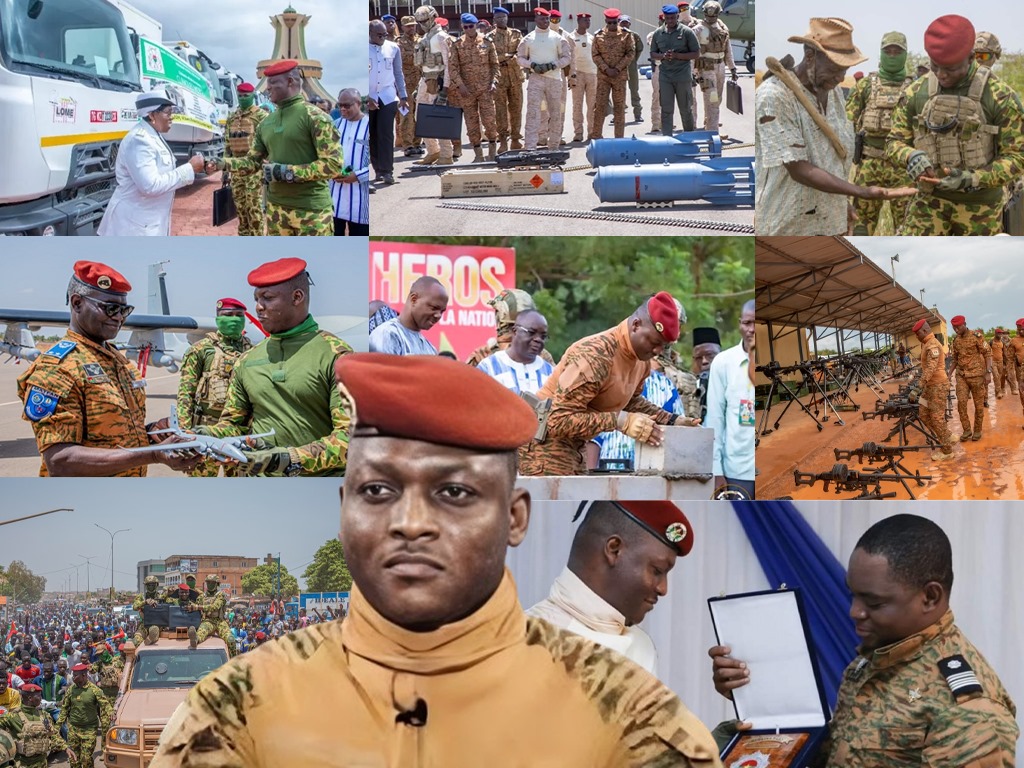Burkina Faso/Destabilisation: Enemies determined to destroy the gains and efforts of Burkina Faso’s people

Since the rise of Captain Ibrahim Traoré and the transitional government, Burkina Faso has embarked on a significant transformation, emphasizing freedom, sovereignty, and national prosperity.
This new era, driven by a focused agenda, has yielded substantial results, particularly in the domain of national security—a priority for the current administration.
In less than two years, the transitional government has reclaimed 69% of the national territory previously held by insurgents.
This achievement has been accompanied by the resettlement of hundreds of thousands of internally displaced persons, a testament to the regime’s commitment to restoring stability.
Additionally, the military’s capabilities have been significantly enhanced, both in terms of logistics and manpower, and the living conditions of soldiers and their civilian auxiliaries, known as the Volunteers for the Defense of the Homeland (VDP), have seen marked improvement.
The government’s efforts extend beyond security. Ambitious initiatives in key economic sectors such as agriculture, livestock, entrepreneurship, and industrialization are underway, aiming to lay the foundation for long-term development. These achievements, however, are not without opposition.
For some detractors, the problem lies not in the effectiveness of Captain Traoré’s vision, but in the fact that his administration has disrupted the status quo.
The regime has challenged the interests of power-hungry elites and those who previously thrived under an imperialist and crisis-ridden system.
These adversaries, discontented with the new direction, are accused of attempting to undermine the government through orchestrated acts of violence.
Recent deadly terrorist attacks are seen by analysts as part of a broader strategy to destabilize the country and overthrow a government that has shown a determined resolve to free Burkina Faso from terrorism and neo-colonial influences.
For the enemies of peace and stability—both internal and external—thwarting the transitional government’s efforts is imperative.
Analysts argue that these individuals, motivated by selfishness and dishonesty, prioritize their interests over the well-being of their fellow citizens. Their actions, which disregard the value of human life, have led some to suggest that they should face consequences commensurate with their betrayal.
As Burkina Faso navigates these turbulent times, the unity and resolve of its people remain crucial in securing the gains made under the current administration and ensuring a future free from external and internal subversion.
Papa IBRAHIMA











